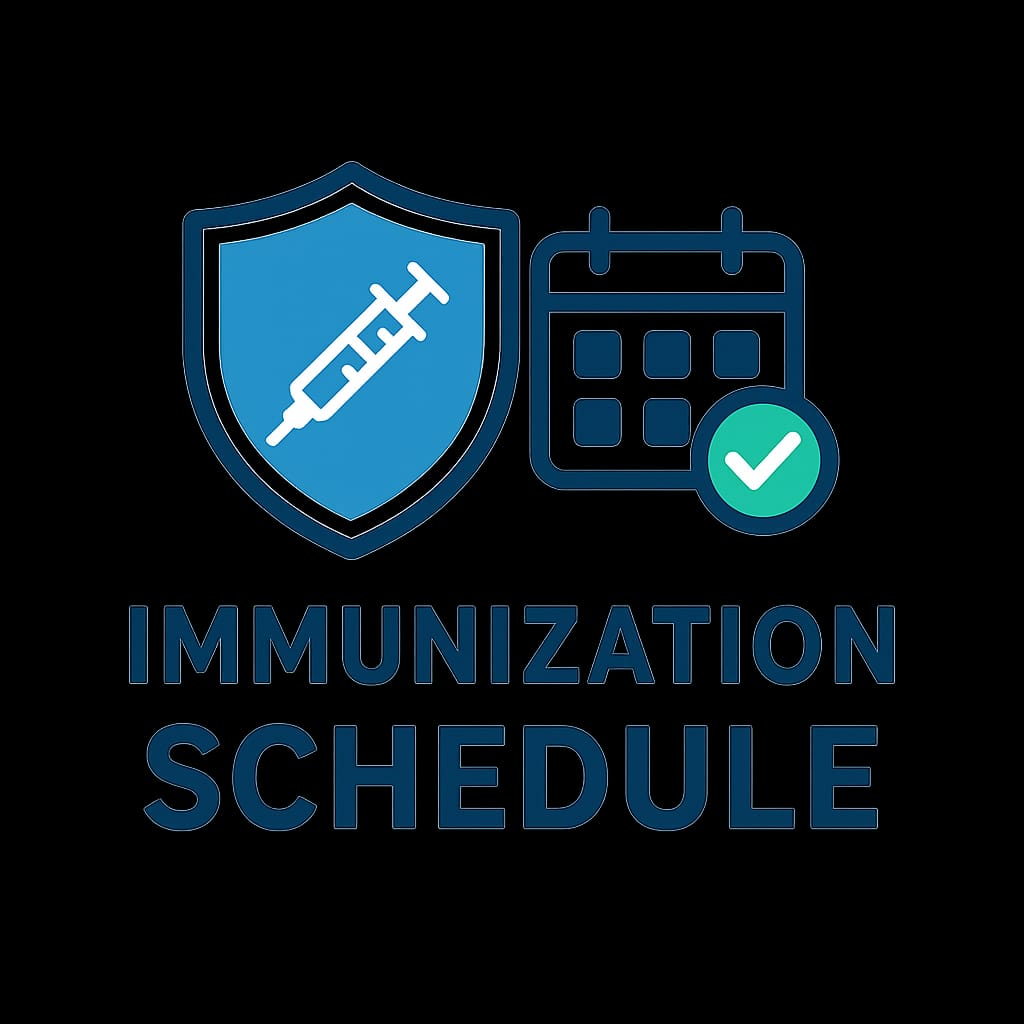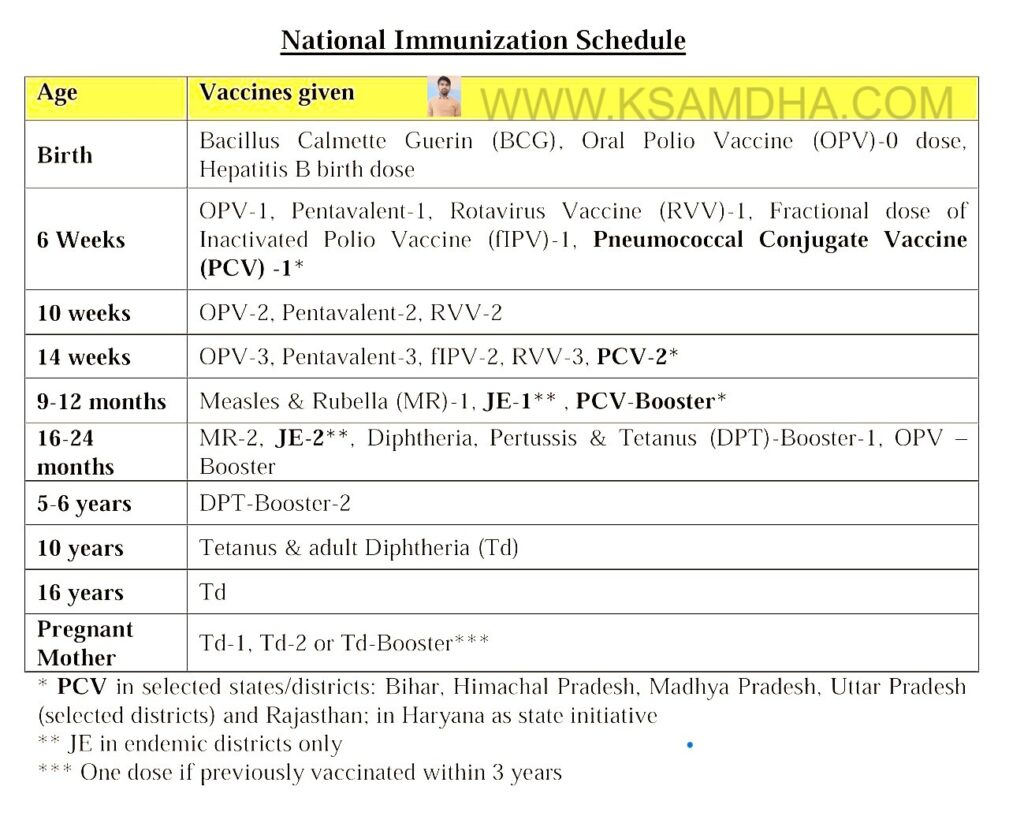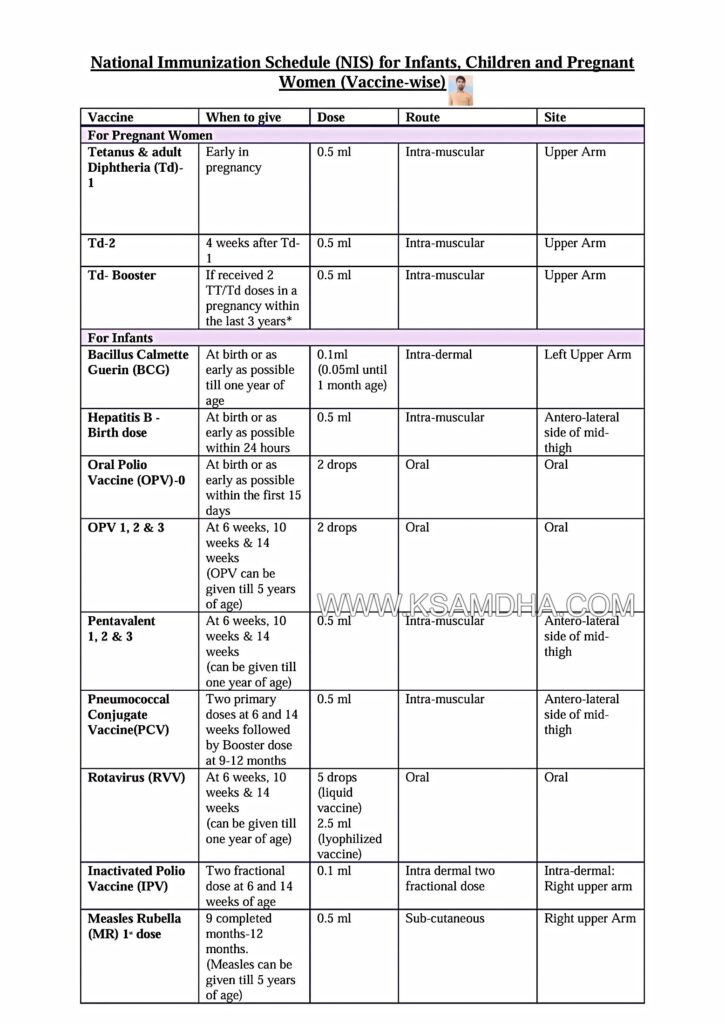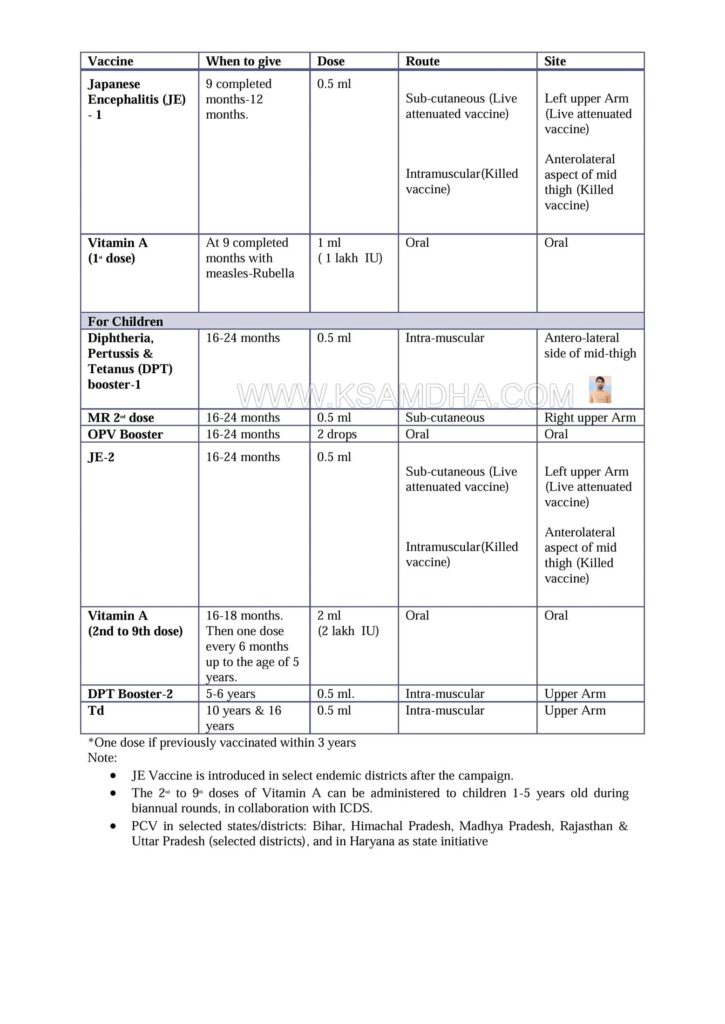Immunization is one of the most powerful tools in modern medicine. Vaccines protect us from dangerous infectious diseases and save millions of lives every year. However, the timing of vaccines is just as important as the vaccine itself. That is why health authorities worldwide publish a standard immunization schedule, which guides parents, caregivers, and healthcare professionals on when each vaccine should be given for maximum protection.

Why an Immunization Schedule is Important
1 – Age-specific protection: Newborns and children are most vulnerable to infections. Vaccines at certain ages provide early immunity.
2 – Booster doses : Some vaccines need multiple doses to build long-lasting immunity.
3 – Community protection : Following the schedule ensures higher coverage, which prevents outbreaks.
4 – Consistency worldwide : While exact vaccines differ by country, the principle of timely vaccination is universal.
Immunization Schedule for Infants and Children



Immunization Schedule for Adolescents
HPV (Human Papillomavirus vaccine): Given at 9–14 years, protects against cervical and other cancers.
Tdap booster (Tetanus, Diphtheria, Pertussis): Around 10–12 years.
Meningococcal vaccine: Recommended in some countries, especially before college or military service.
Immunization Schedule for Adults
Tetanus/diphtheria booster: Every 10 years.
Influenza vaccine: Annually, especially for healthcare workers, elderly, and high-risk groups.
Hepatitis B series: For adults not vaccinated earlier.
MMR: If not received in childhood, one or two doses are recommended.
Varicella (chickenpox): For those without prior infection or vaccination.
Shingles (Herpes zoster vaccine): For adults above 50 years.
Pneumococcal vaccine: Recommended for older adults and people with chronic illnesses.
Special Situations
1 – Pregnancy:
Tetanus-toxoid or Tdap is given during pregnancy to protect both mother and newborn.
Influenza vaccination is safe and recommended.
2 – Travelers:
Yellow fever, meningococcal, and Japanese encephalitis vaccines may be required depending on destination.
3 – High-risk groups:
People with diabetes, heart disease, kidney disease, or weakened immunity may need extra vaccines.
Catch-Up Vaccination
Missed a dose? Don’t worry — catch-up schedules exist. In most cases, you don’t need to restart the series; you simply continue from where you left off.
Healthcare providers will design a catch-up plan depending on age and previous vaccines received.
Tips for Parents and Families
Keep a vaccination card or digital record.
Set reminders for upcoming doses.
Visit reliable sources (WHO, UNICEF, Ministry of Health) for updates.
Ask your doctor about optional vaccines not in the government schedule but valuable for protection.
Remember: Timeliness matters—delays can leave children unprotected during critical ages
